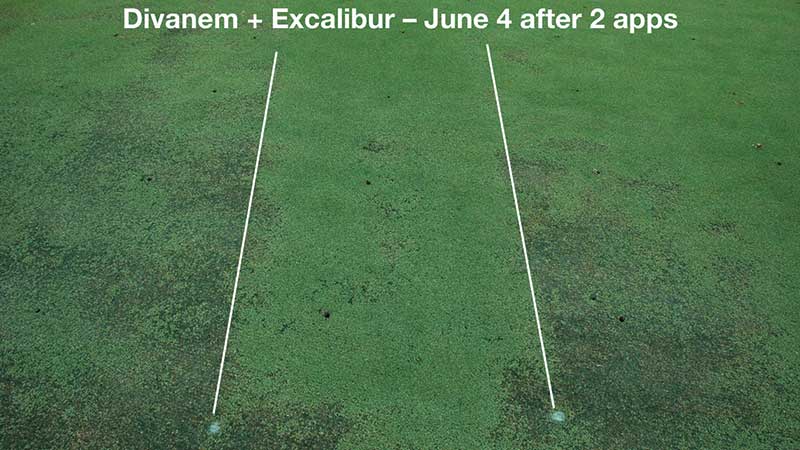Off the Record: An important decision

Mike Kenna
One of the figure captions in this month’s Super Science article from Bert McCarty, Ph.D., struck a chord. He said, “… with the loss of the effective organic arsenical (e.g., monosodium methanearsonate (MSMA)) herbicides, (tropical signalgrass) has exploded in the past 10 years in areas like Florida.”
The MSMA controversy reminded me of environmental issues in the 1990s when the USGA initiated research on the environmental benefits and impact of golf courses.
The initial three-year program started 21 research projects by 1992. The objectives were to 1) understand the effect of turfgrass pest management and fertilization on water quality and the environment, 2) evaluate valid alternative methods of pest control to be used in integrated turfgrass management systems and 3) determine the human, biological and environmental factors that golf courses influence.
Eleven of the projects started in 1991 focused on the fate of pesticides and nutrients. By 2010, the USGA funded $5.5 million on 54 projects investigating what happens to pesticide and fertilizer products applied on golf courses. One of the projects was under the direction of George Snyder, Ph.D., and John Cisar, Ph.D., at the University of Florida. They were looking at what happens to pesticide products applied to a USGA putting green with Tifdwarf bermudagrass.
In some ways, the research conducted in Florida signaled problems with the use of MSMA. Both dimethylarsinic acid and arsenic leached through the sand root zone of the green. But, the amounts found in the water were parts per billion (micrograms per liter).
In 2006, water samples from two Florida golf courses tested high for arsenic. Shortly after, the Environmental Protection Agency (EPA) proposed the cancellation of all agricultural uses of MSMA. In 2009, the EPA announced details to phase out MSMA usage on all turfgrass. Companies would not be able to sell products containing MSMA after 2012. By 2013, the EPA launched a registration review for MSMA. The timeline for completion was January to March 2019. During the review process, the label for MSMA includes golf courses in several states, but Florida is not one of them.
The Organic Arsenical Products Task Force (OAPTF) consists of two companies: Drexel Chemical Co. and Luxembourg-Pamol. They submitted scientific data to the EPA about the potential risk of MSMA to human health or the environment. As of this writing, I could not find a final decision by the EPA.
According to the OAPTF, the date for completion of the review is uncertain. It believes it will be in 2022. In response to requests from turfgrass users, the registrants of MSMA will be pursuing an action under the Pesticide Review Improvement Act (PRIA) to make the current turfgrass uses permanent.
Based on user requests, the PRIA submission will seek to expand the label for current uses and restore other turf uses voluntarily canceled under the agreement with EPA in 2009. It will request the restoration of broadcast applications for golf course fairways, as well as the label inclusion of Florida.
OAPTF will file the PRIA application before the end of this year. Other turfgrass organizations, such as Turfgrass Producers International (TPI), are working to restore turfgrass use of MSMA under PRIA permanently. TPI met with the EPA in Washington, D.C., in May 2019 to discuss how vital MSMA is to turfgrass sod production.
Unless the EPA makes a decision, the current application restrictions will remain. Visit the following two websites if you are interested in the most current information on the status of MSMA.
The United States Environmental Protection Agency website for organic arsenicals can be found here.
The Organic Arsenical Products Task Force can be found here.
Please contact me at mpkenna@gmail.com to provide any comments or questions about the status of MSMA.










